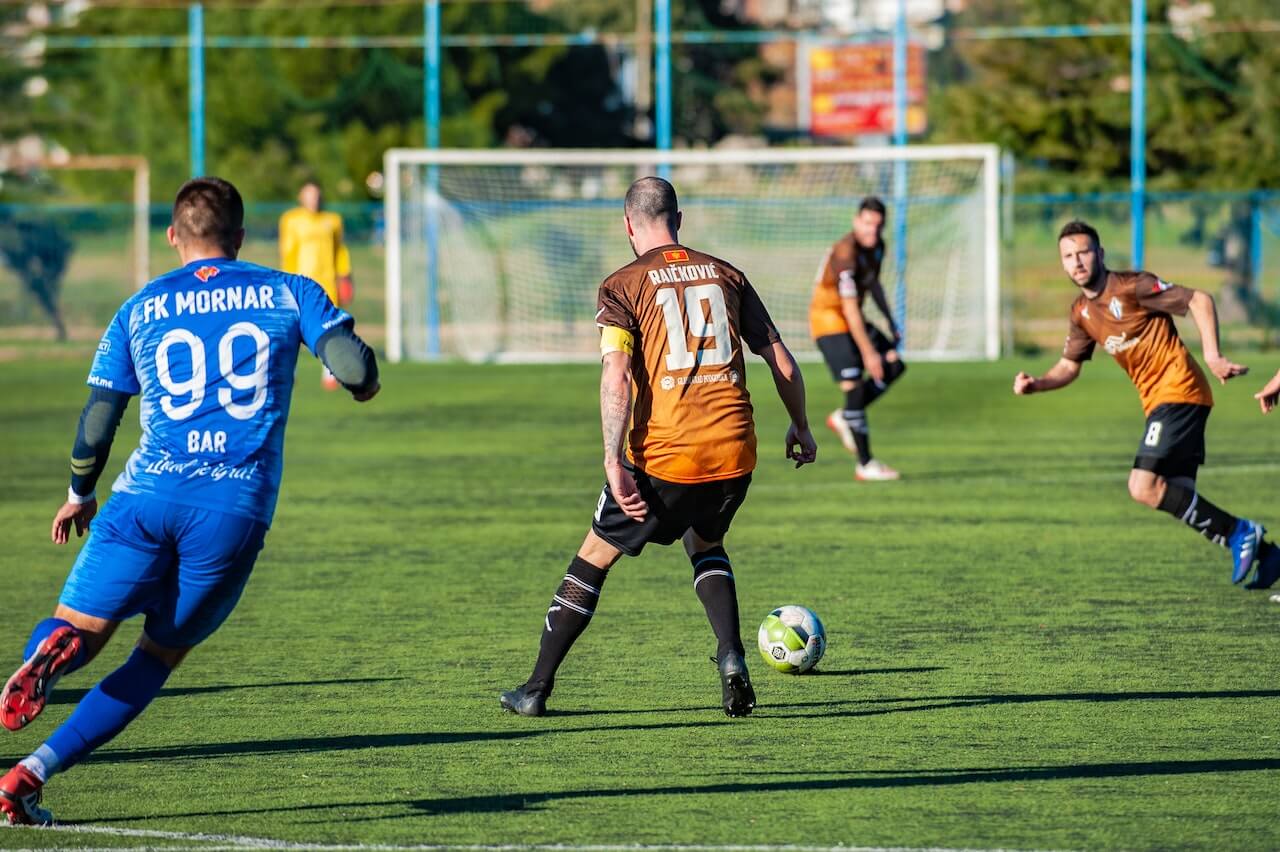Fullbacks are an essential part of a soccer team. They play a crucial role in both defense and offense, making them one of the most versatile positions on the field. Fullbacks are typically positioned on the sides of the field, just behind the midfielders. They are responsible for covering the opposing team’s wingers and preventing them from making dangerous runs into the box.
Fullbacks are also responsible for providing width to the team’s attack. They are often involved in overlapping runs, which means they move forward to support the team’s wingers and provide an additional passing option. This allows the team to stretch the opposition’s defense and create more space for attacking players to operate in.
Fullbacks require a unique set of skills to excel in their position. They need to be fast, agile, and have excellent defensive abilities. They also need to be comfortable on the ball and have good passing and crossing abilities. In recent years, the role of the fullback has evolved, and they are now expected to contribute significantly to the team’s attack. As a result, modern fullbacks need to be able to perform both defensive and attacking duties at a high level.
Role of Fullbacks
Fullbacks are an essential part of any soccer team. They are responsible for defending their team’s goal and helping their team in attacking. Fullbacks are usually positioned on the left and right sides of the defense, but they can also play in the center of the defense.
The primary role of fullbacks is to prevent the opposing team from scoring goals. They do this by marking the opposing team’s forwards and blocking their shots. Fullbacks also clear the ball from their team’s penalty area and stop the opposing team’s attacks by intercepting passes and making tackles.
Fullbacks also play an important role in the attacking phase of the game. They provide width to the team’s attack by overlapping the midfielders and wingers. Fullbacks can also deliver crosses into the penalty area, which can create scoring opportunities for their team’s forwards. In addition, fullbacks can join the attack and score goals themselves.
Fullbacks need to have several key attributes to be successful. They need to be fast, agile, and have good stamina to cover the entire length of the field. They also need to have good defensive skills, including tackling, marking, and intercepting passes. Fullbacks also need to have good passing and crossing skills to contribute to their team’s attack.
In summary, fullbacks play a crucial role in soccer. They are responsible for defending their team’s goal and helping their team in attacking. Fullbacks need to have a range of skills to be successful, including defensive skills, passing skills, and attacking skills.
Defensive Responsibilities
Fullbacks in soccer are primarily responsible for defending against the opposition’s attacks. They play a crucial role in preventing the opposing team from scoring goals. Their primary objective is to stop the opposition from advancing towards the goal and to limit their chances of scoring.
Fullbacks must be skilled at marking and tackling the opposition players. They must be able to anticipate the movements of the opposition players and position themselves accordingly. They must also be able to communicate effectively with their teammates to ensure that they are covering the right areas of the field.
Fullbacks are also responsible for clearing the ball out of their own penalty area. They must be able to make quick decisions under pressure and clear the ball away from danger. They must also be able to intercept passes and make timely tackles to prevent the opposition from creating scoring opportunities.
In addition to their defensive responsibilities, fullbacks also play an important role in the team’s attacking play. They must be able to overlap with their teammates and provide support in the attack. They must also be able to deliver accurate crosses into the opposition’s penalty area.
Overall, fullbacks are an essential part of any soccer team’s defense. They must be skilled at marking and tackling, clearing the ball out of danger, and providing support in the attack. Their ability to perform these duties effectively can have a significant impact on the team’s success.
Attacking Responsibilities
Fullbacks are not just responsible for defending, they also have attacking responsibilities on the field. When the team is in possession of the ball, fullbacks often push up the field to provide width and support to the midfield and forward lines.
One of the primary attacking responsibilities of fullbacks is to overlap with the wingers and provide crosses into the box. This requires good timing and communication with the winger to avoid being caught out of position on a counter-attack. Fullbacks also need to have good crossing ability to deliver accurate balls into the box.
In addition to overlapping with the wingers, fullbacks may also make runs into the box themselves to provide an extra attacking option. This requires good stamina and the ability to read the game to know when to push forward and when to stay back to defend.
When the team is in possession of the ball, fullbacks may also be responsible for taking throw-ins in the attacking half of the field. This allows them to quickly get the ball back into play and create scoring opportunities.
Overall, fullbacks play a crucial role in both defending and attacking on the soccer field. Their ability to balance these responsibilities is key to their success and the success of the team as a whole.
Famous Fullbacks
Fullbacks are an integral part of any soccer team, and over the years, there have been some outstanding players in this position. Here are some of the most famous fullbacks in the history of soccer:
Cafu
Cafu is widely regarded as one of the greatest fullbacks of all time. He played for Brazil in three World Cups, winning two of them, and was known for his incredible stamina and work rate. Cafu was also an excellent defender and had a great ability to read the game, making him a crucial part of Brazil’s success in the 2002 World Cup.
Paolo Maldini
Maldini is another legendary fullback who spent his entire career with AC Milan. He won seven Serie A titles, five Champions League trophies, and was a key part of Italy’s World Cup-winning team in 2006. Maldini was known for his incredible defensive skills, as well as his ability to score goals and create chances from the back.
Philipp Lahm
Lahm is a former German international who played for Bayern Munich for most of his career. He won eight Bundesliga titles, as well as the Champions League and the World Cup. Lahm was a versatile player who could play in multiple positions, but he was at his best as a fullback. He was known for his excellent tackling, positioning, and leadership skills.
Dani Alves
Alves is a Brazilian fullback who has played for some of the biggest clubs in the world, including Barcelona, Juventus, and Paris Saint-Germain. He has won numerous domestic and international titles, including three Champions League trophies and two Copa Americas with Brazil. Alves is known for his incredible attacking skills, as well as his defensive abilities.
These are just a few examples of the many great fullbacks who have graced the soccer field over the years. Their skills, dedication, and hard work have helped to shape the game and inspire future generations of players.
Conclusion
Fullbacks are an important part of any soccer team, providing defensive stability while also contributing to the attack. They are versatile players who must be able to defend against fast wingers and also make overlapping runs to support the midfield and forwards.
Throughout this article, we have explored the various roles and responsibilities of fullbacks, from marking opposing attackers to delivering crosses into the box. We have also seen how the position has evolved over time, with modern fullbacks expected to be more attack-minded than their predecessors.
Despite the importance of fullbacks, they are often overlooked in favor of more glamorous positions such as strikers and attacking midfielders. However, any successful team knows the value of a solid defense, and fullbacks play a crucial role in achieving that.
Whether you are a coach looking to build a strong defensive unit or a fan looking to better understand the game, it is clear that fullbacks are an integral part of soccer. By mastering the skills required of this position, players can become valuable assets to their team and help lead them to victory.







